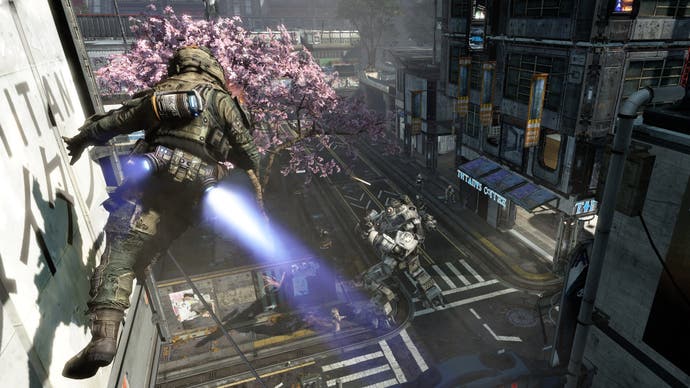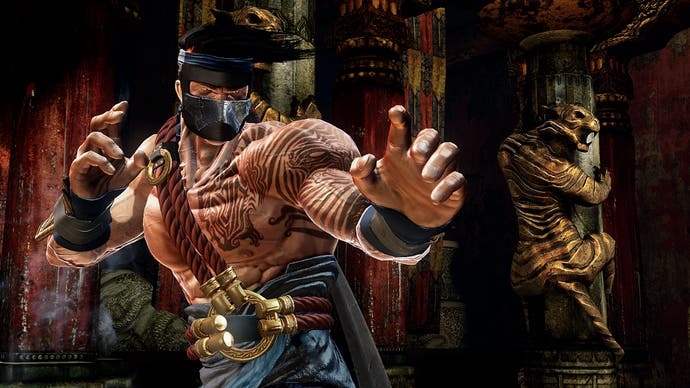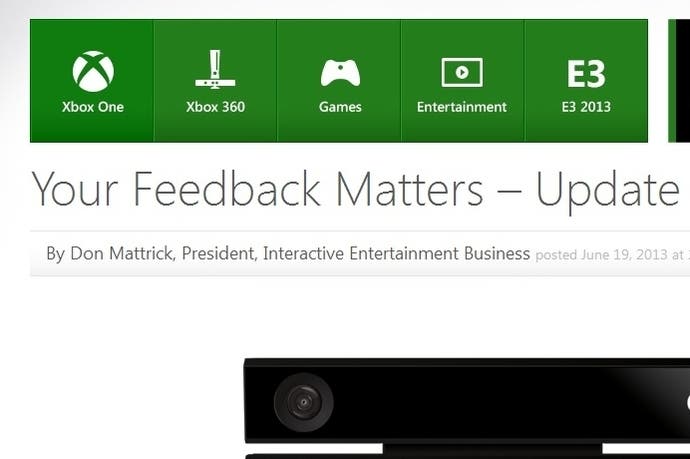Microsoft restores game ownership and expects us to smile
For this reversal to have meaning, it must be matched by deeper change.
I remember waking up on the day Microsoft unveiled its original set of Xbox One policies, reading through them on my phone and being desperately sad. When I wrote about them that morning, I chose a headline that reflected the kind of sombre dejection I was feeling: Microsoft kills game ownership and expects us to smile.
The original policies would have taken ownership of games away from players completely, rather than allowing us to sacrifice it for the convenience of digital access if that was our choice. And while they promised to create mechanisms for sharing or reselling the licences that we would be paying for instead, the details were either murky or restrictive. The console would also have had to access the internet once a day or else.
Less than two weeks later, Microsoft completely changed its approach, reversing its position so much that the Xbox One will now work in much the same way as Xbox 360. There is some collateral damage - such as the loss of digital game-sharing options - but I don't imagine it will be a terrific stretch for Microsoft to introduce features along those lines at a later date, should it wish to do so.
The fact that Microsoft has decided to give its customers more choice and greater control over their investments is an improvement on its original position, but I am still deeply sceptical about its intentions and their potential consequences. Let me explain why.

I got married earlier this year and my wife and I intend to start a family. I have a lot of old games - Super Nintendo cartridges like Chrono Trigger and EarthBound - that I look after very carefully, and I am excited about the idea of showing them to my children. It will be natural for children born today to understand and appreciate video games throughout their lives, and while the artistic achievements of the games we have now will seem primitive compared to the games they play as they grow up, it makes me happy that I will be able to show them the original building blocks for something they love. For them to understand or even contribute to this artform, I believe it is important that they are able to trace those origins and experience them, in the same way that somebody who wants to understand the cultural legacy of Citizen Kane can go back and study that film.
"The fact that Microsoft has decided to give its customers more choice and greater control over their investments is an improvement on its original position, but I am still deeply sceptical."
Moreover, I want them to fall in love with games to the same extent that I have, and while the notion of physical media is not an irreducible component of that relationship, I believe that the concept of ownership is extremely significant to it. The world needs collectors, archivists and curators who strike up deep, spiritual bonds with art and history in order for those things to continue to resound throughout our cultural consciousness, and I believe those bonds start at a personal level. It is my own experience - I am who I am because I was able to collect and covet these things as they began to matter to me.
So I was sad about Microsoft's original Xbox One policies not necessarily because of the effect they would have on me (I haven't pre-ordered Ryse anyway, I'm afraid), but because I felt they were driving us toward a future where games would be inherently more transient, reducing their potential to leave any kind of cultural legacy, and because they were making it harder to form lasting bonds with them and preserve artistic achievement, reducing their potential to make a future generation of gamers fall in love with games in a way that should be their birthright.

Microsoft's new policies tell us what it is going to do in the first days of Xbox One, but they don't tell us that its desires have changed, and those desires were responsible for the old policies. Those desires were on full display at E3 last week, where Xbox executives repeatedly manoeuvred the conversation towards connected experiences and the portable game library, arguing that the choices we were losing were not as important as the benefits we gained. This is not true. It is more accurate to say that the choices we would lose are not as important to Microsoft as the resulting alternative. The reason that the original Xbox One policies were attractive to Microsoft is because it wants to own the living room with an Xbox service that can rival iTunes, and they would have been a very neat fit with that objective.
I started off my original post about game ownership by quoting something I wrote during E3 in 2012. "If we are entertained by what Microsoft chooses to do for its own gain," I suggested, "then that is simply a happy coincidence." The coincidence was over, I concluded, because Xbox One's original DRM policies were devastating. All I can conclude today is that the coincidence has been extended. To judge by what Microsoft said at E3, it has probably been done so reluctantly. I see nothing to suggest that the desire behind its original decisions has changed, and until Microsoft convinces me that it understands the significance to gaming of ownership and legacy, I will find it hard not to be pessimistic.
What I sincerely hope is that Microsoft hasn't just concluded it went too far too soon with its original Xbox One policies but that, as it considers the ramifications today's U-turn will have on its future Xbox strategy, it works more carefully to balance its business interests against the long-term sustainability of the medium it desperately wants to control.

